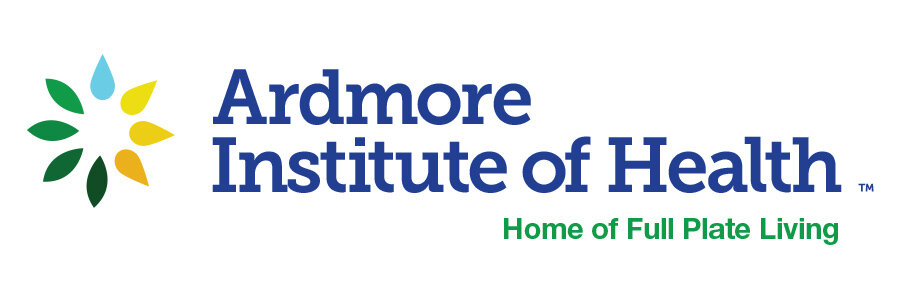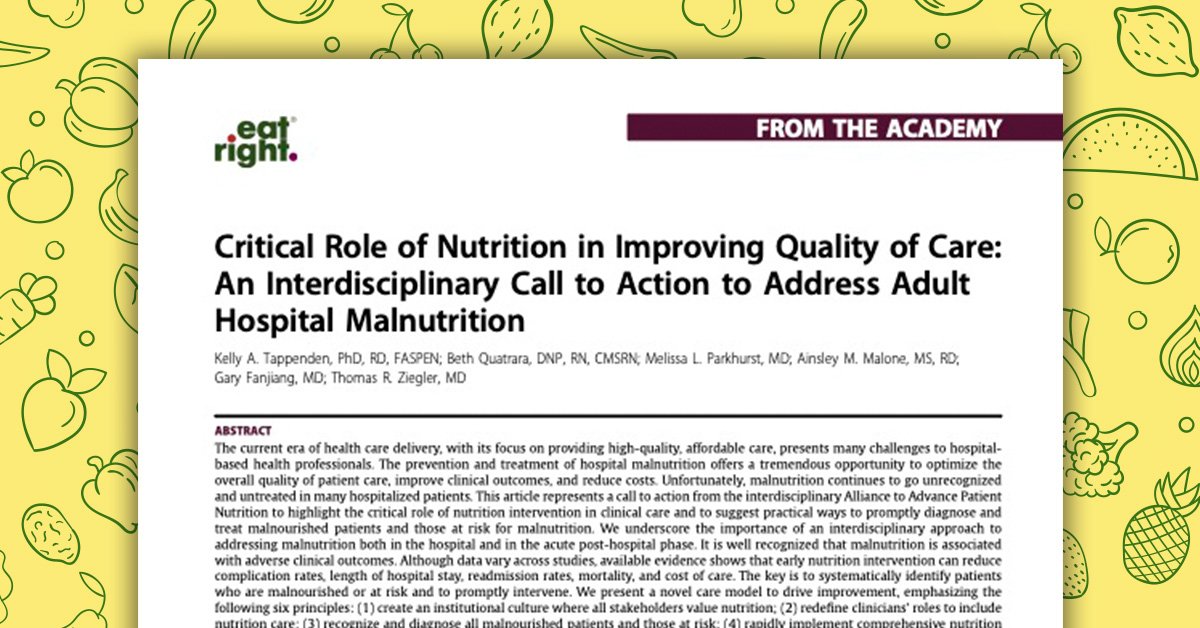Critical Role of Nutrition in Improving Quality of Care: An Interdisciplinary Call to Action to Address Adult Hospital Malnutrition
Published in the Journal of the Academy of Nutrition and Dietetics.
Abstract
The current era of health care delivery, with its focus on providing high-quality, affordable care, presents many challenges to hospital- based health professionals. The prevention and treatment of hospital malnutrition offers a tremendous opportunity to optimize the overall quality of patient care, improve clinical outcomes, and reduce costs. Unfortunately, malnutrition continues to go unrecognized and untreated in many hospitalized patients. This article represents a call to action from the interdisciplinary Alliance to Advance Patient Nutrition to highlight the critical role of nutrition intervention in clinical care and to suggest practical ways to promptly diagnose and treat malnourished patients and those at risk for malnutrition. We underscore the importance of an interdisciplinary approach to addressing malnutrition both in the hospital and in the acute post-hospital phase. It is well recognized that malnutrition is associated with adverse clinical outcomes. Although data vary across studies, available evidence shows that early nutrition intervention can reduce complication rates, length of hospital stay, readmission rates, mortality, and cost of care. The key is to systematically identify patients who are malnourished or at risk and to promptly intervene. We present a novel care model to drive improvement, emphasizing the following six principles: (1) create an institutional culture where all stakeholders value nutrition; (2) redefine clinicians’ roles to include nutrition care; (3) recognize and diagnose all malnourished patients and those at risk; (4) rapidly implement comprehensive nutrition interventions and continued monitoring; (5) communicate nutrition care plans; and (6) develop a comprehensive discharge nutrition care and education plan.

